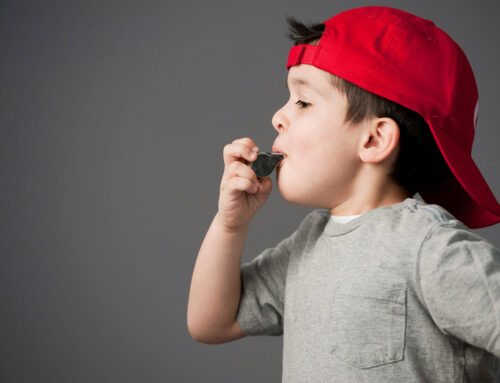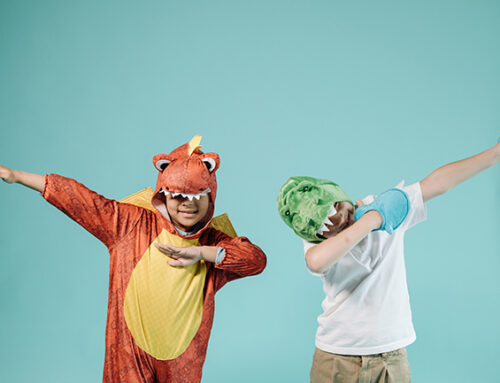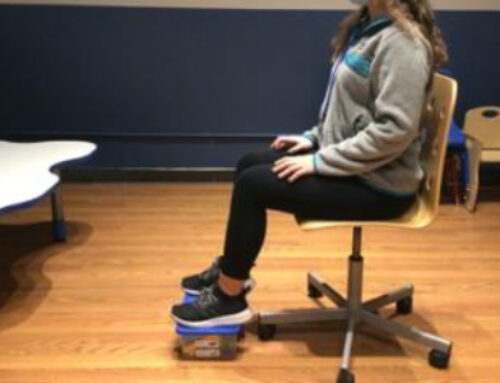Baseball, soccer, basketball, and football skills all start with basic foundational ball skills. These skills are built throughout early childhood, and they progress and develop through practice and persistence. Not everyone needs to be a pro athlete, but basic ball skills are important for individuals to develop hand-eye coordination, build confidence during community sports and activities, and develop the coordination and motor skills necessary for activities of daily living.
Young children begin by exploring balls and other small objects through rolling and passing. This should develop into flinging objects, underhand and overhand throwing, and kicking a ball to a target. As your child develops his/her shoulder and abdominal stability, he/she will begin to develop and improve his/her throwing skills and accuracy. This will lead to greater interest in throwing to a target and early team sports such as T-ball and soccer. Kicking a ball requires additional lower body strength and stability to shift weight to one side, balance on one leg, and kick a ball forward. Both kicking and initial catching and throwing skills are essential for building motor coordination, visual tracking skills, and stability for future sports and activities.
If kicking, catching, and throwing seem especially challenging for your child, then it might be time to identify some underlying factors. Difficulty throwing and catching can stem from difficulty maintaining visual attention; emerging primitive reflexes; limitations in the abdominal, lower body, or proximal stability; and difficulty coordinating and motor planning the steps involved with catching and throwing. If your child appears frustrated, this might be due to any of the above difficulties.
Please consult a Blue Bird physical therapist if catching, kicking, or throwing appears overwhelming or intimidating to your child.
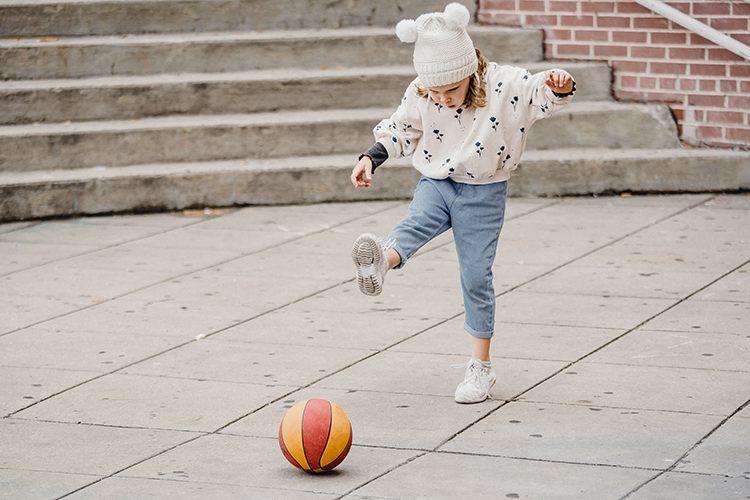
Continue to practice more advanced activities and games as ball skills develop. This will develop confidence and improve participation in games and activities with peers. It is important to begin making these games and activities fun and exciting when practicing at home. Some favorite ideas for ways to make ball skills fun include having a snowball fight; throwing to a themed target such as an animal, letter, number, or shape; and kicking to a peer or to a target that can be easily knocked over (everyone loves knocking things over!). If your child enjoys being competitive, it is also possible to turn any throwing/catching/or kicking game into a competition. Just remember that your child is still young and might not be as good as you yet.
Here is a sequence of steps that can assist with developing early ball skills for children at any age:
1. Begin with basic abdominal and proximal strengthening through activities involving upright seated positions, crawling, or stomach activities such as completing a puzzle on the floor to develop upright standing and seated strength.
2. Build lower body strength for kicking by marching in place or balancing on one leg.
3. If your child is able to sit upright or stand without a loss of balance begin by throwing and catching a larger, soft object such as a large beanbag or softer ball. The extra material/surface area assists with easier catching.
4. Utilize basic verbal and visual cues such as standing on a sports marker and throwing it to a person or a target. Begin close to your child and slowly progress to further distances.
5. Utilize a gentle hand on your child’s elbow and shoulder to assist with the windup for an overhand throw.
6. For kicking, support your child’s standing balance by providing a handhold assist so they can shift their weight and lift a foot to kick any object.
7. Demonstrate each activity for your child to have a visual representation of the task.
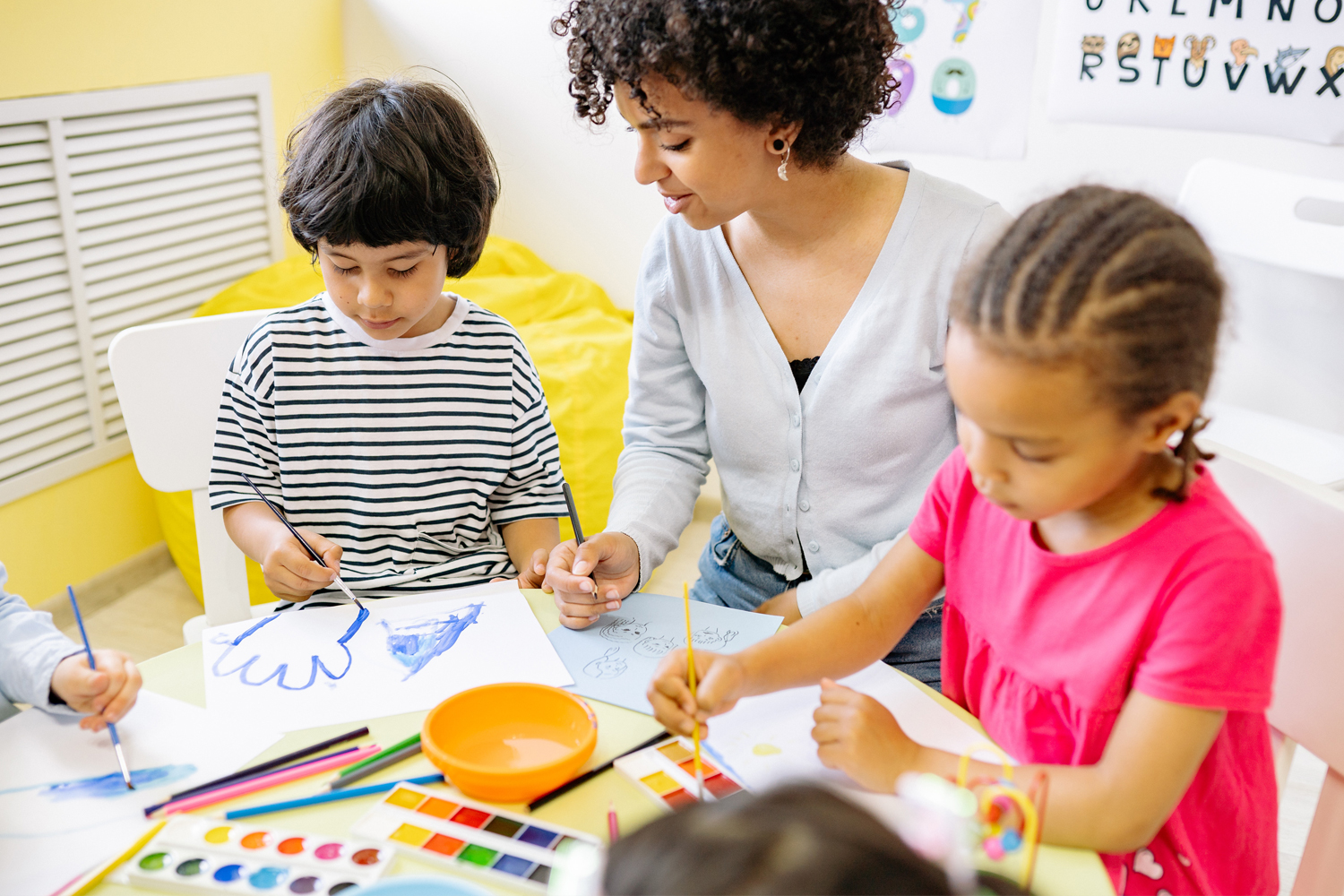
Blue Bird Day fosters socialization, sensory regulation, and pre-academic learning in children ages 2-7 years in therapeutic rotations that simulate preschool and kindergarten settings. Our compassionate therapists practice a relationship-based and family-centered approach, provide parent training, and collaborate on goals and individualized intensive treatment plans for your child.
We believe in a collaborative and multi-disciplinary team approach to therapy. A team of occupational therapists, speech-language pathologists, dietitians, developmental therapists, behavioral therapists, physical therapists, and therapeutic assistants are created for each child to ensure child and family are fully supported and the best possible results are achieved.
Options for individualized, group and virtual therapy sessions are available as well.
Want to learn more or you have a specific question? Feel free to connect with us here!

